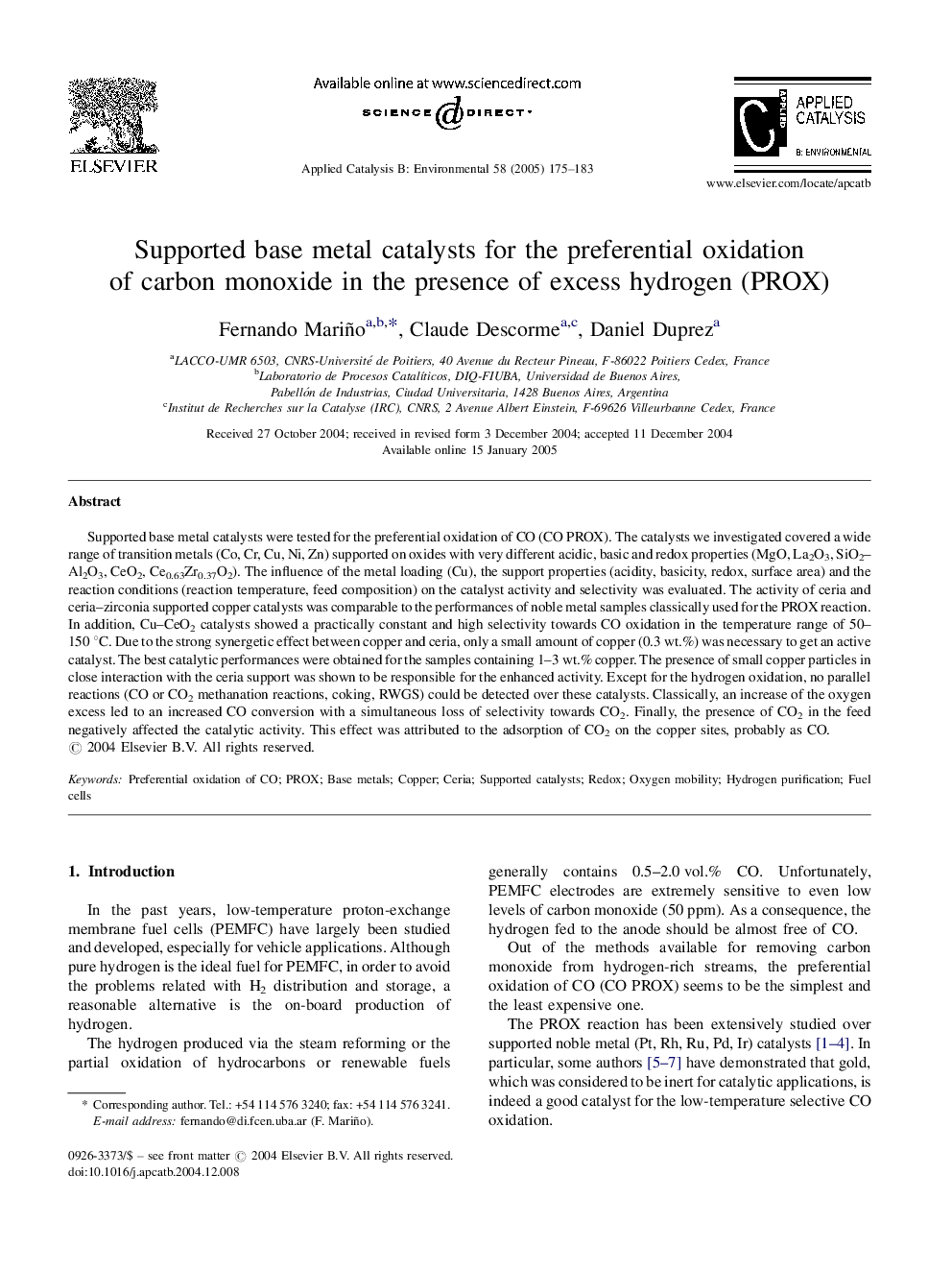| Article ID | Journal | Published Year | Pages | File Type |
|---|---|---|---|---|
| 9609884 | Applied Catalysis B: Environmental | 2005 | 9 Pages |
Abstract
Supported base metal catalysts were tested for the preferential oxidation of CO (CO PROX). The catalysts we investigated covered a wide range of transition metals (Co, Cr, Cu, Ni, Zn) supported on oxides with very different acidic, basic and redox properties (MgO, La2O3, SiO2-Al2O3, CeO2, Ce0.63Zr0.37O2). The influence of the metal loading (Cu), the support properties (acidity, basicity, redox, surface area) and the reaction conditions (reaction temperature, feed composition) on the catalyst activity and selectivity was evaluated. The activity of ceria and ceria-zirconia supported copper catalysts was comparable to the performances of noble metal samples classically used for the PROX reaction. In addition, Cu-CeO2 catalysts showed a practically constant and high selectivity towards CO oxidation in the temperature range of 50-150 °C. Due to the strong synergetic effect between copper and ceria, only a small amount of copper (0.3 wt.%) was necessary to get an active catalyst. The best catalytic performances were obtained for the samples containing 1-3 wt.% copper. The presence of small copper particles in close interaction with the ceria support was shown to be responsible for the enhanced activity. Except for the hydrogen oxidation, no parallel reactions (CO or CO2 methanation reactions, coking, RWGS) could be detected over these catalysts. Classically, an increase of the oxygen excess led to an increased CO conversion with a simultaneous loss of selectivity towards CO2. Finally, the presence of CO2 in the feed negatively affected the catalytic activity. This effect was attributed to the adsorption of CO2 on the copper sites, probably as CO.
Keywords
Related Topics
Physical Sciences and Engineering
Chemical Engineering
Catalysis
Authors
Fernando Mariño, Claude Descorme, Daniel Duprez,
